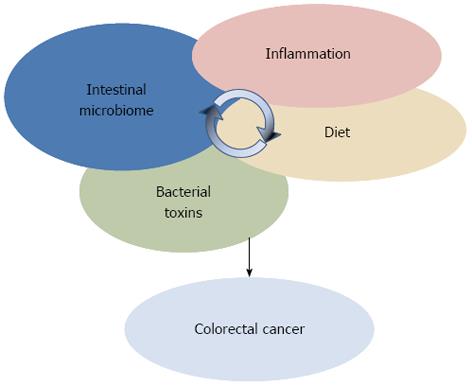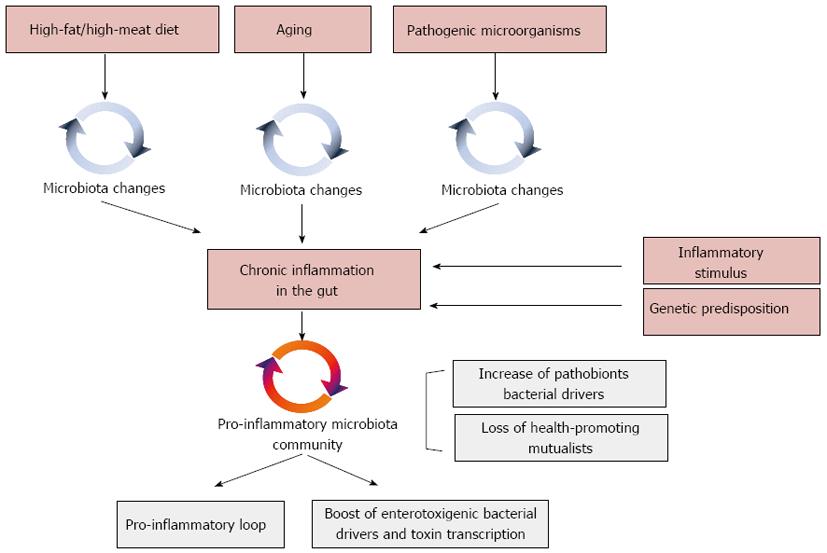©2014 Baishideng Publishing Group Co.
World J Gastroenterol. Jan 28, 2014; 20(4): 908-922
Published online Jan 28, 2014. doi: 10.3748/wjg.v20.i4.908
Published online Jan 28, 2014. doi: 10.3748/wjg.v20.i4.908
Figure 1 Network plot showing correlation relationships among clusters of bacterial genera for the Wu et al[80] dataset.
Each node represents a taxon color-coded for co-abundance group and each line highlights a significant correlation between two bacterial genera. Circle size is proportional to genus abundance. Solid lines indicate positive correlation, whereas dot lines indicate negative correlation. Thickness of the lines is proportional to correlation strength.
Figure 2 Colorectal cancer arises from the interplay between endogenous and exogenous factors, such as inflammation, diet, intestinal microbiome structure, and transcription and activity of bacterial genotoxins.
Figure 3 Environmental triggers, such as diet, aging and pathogen infections, can force microbiota changings that, in a genetically susceptible host, can drive to chronic inflammation in the gut.
Inflammation shifts the gut microbiota towards a pro-inflammatory configuration, supporting colorectal cancer (CRC) drivers as pathobionts at the expense of health-promoting CRC-protective microbiota components. As a consequence, a pro-inflammatory loop is established in the gut, directly supporting CRC onset and favoring colonization by toxigenic bacterial drivers directly involved in CRC promotion.
- Citation: Candela M, Turroni S, Biagi E, Carbonero F, Rampelli S, Fiorentini C, Brigidi P. Inflammation and colorectal cancer, when microbiota-host mutualism breaks. World J Gastroenterol 2014; 20(4): 908-922
- URL: https://www.wjgnet.com/1007-9327/full/v20/i4/908.htm
- DOI: https://dx.doi.org/10.3748/wjg.v20.i4.908















